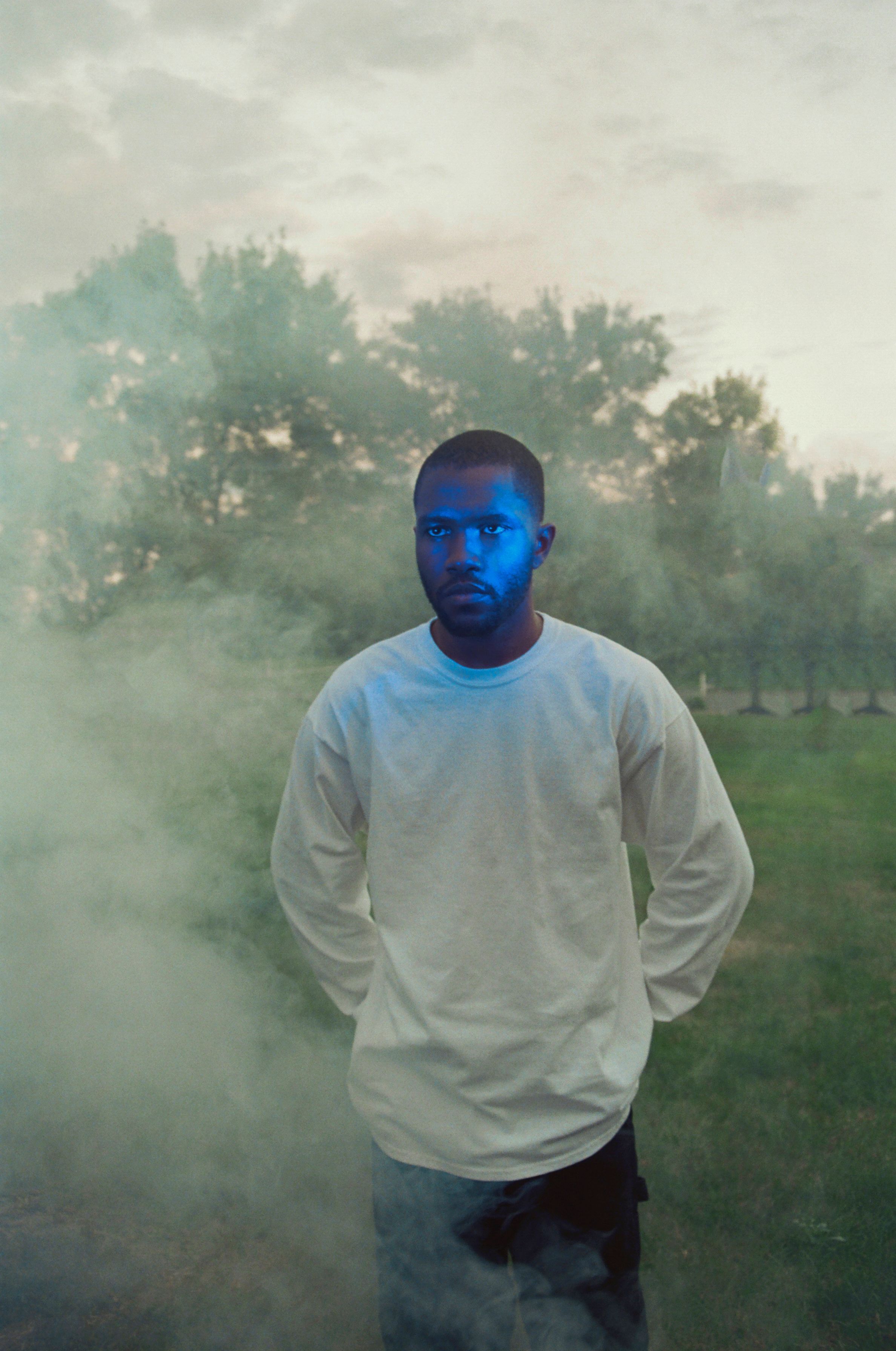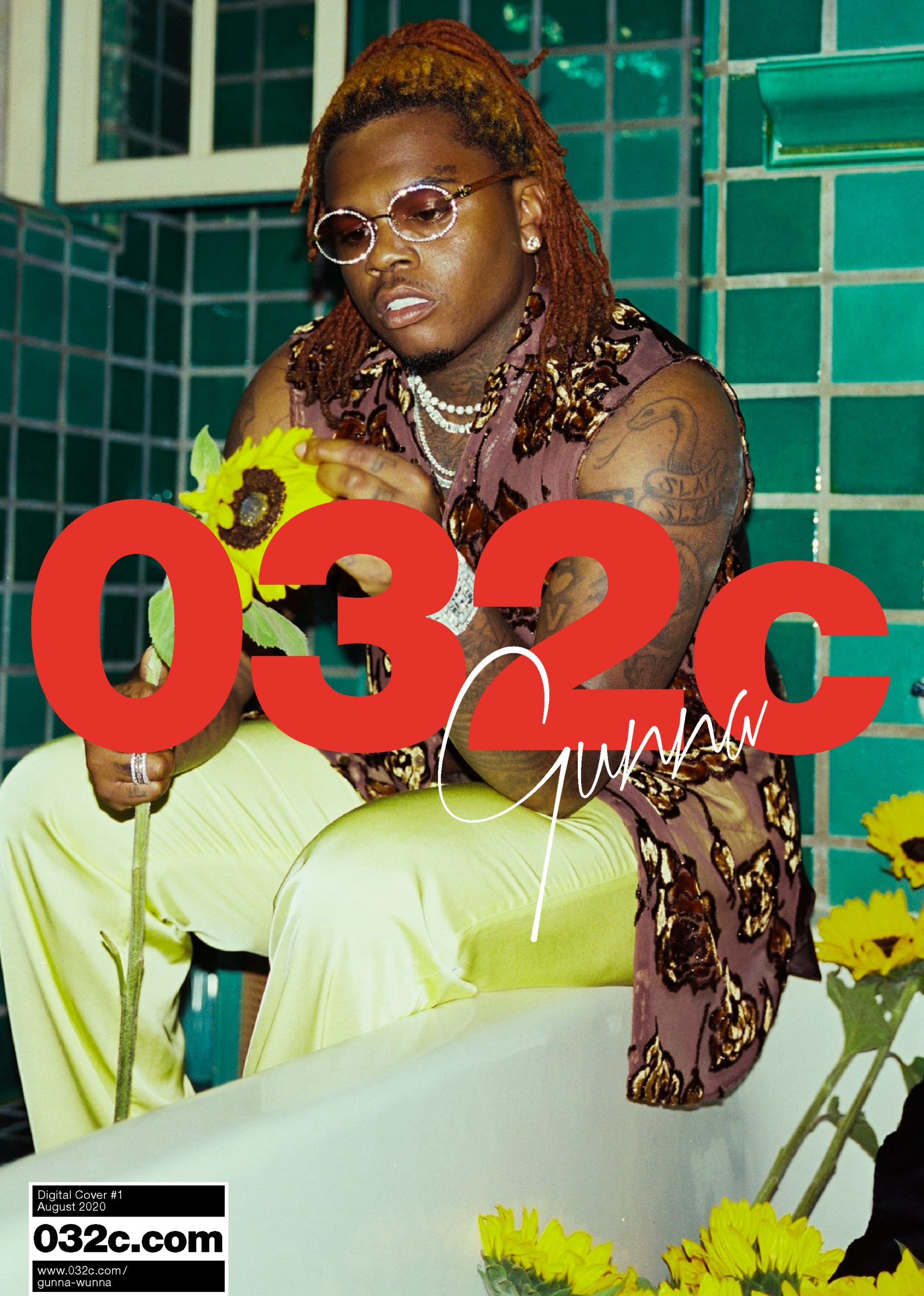VEGYN: Get Uncomfortable
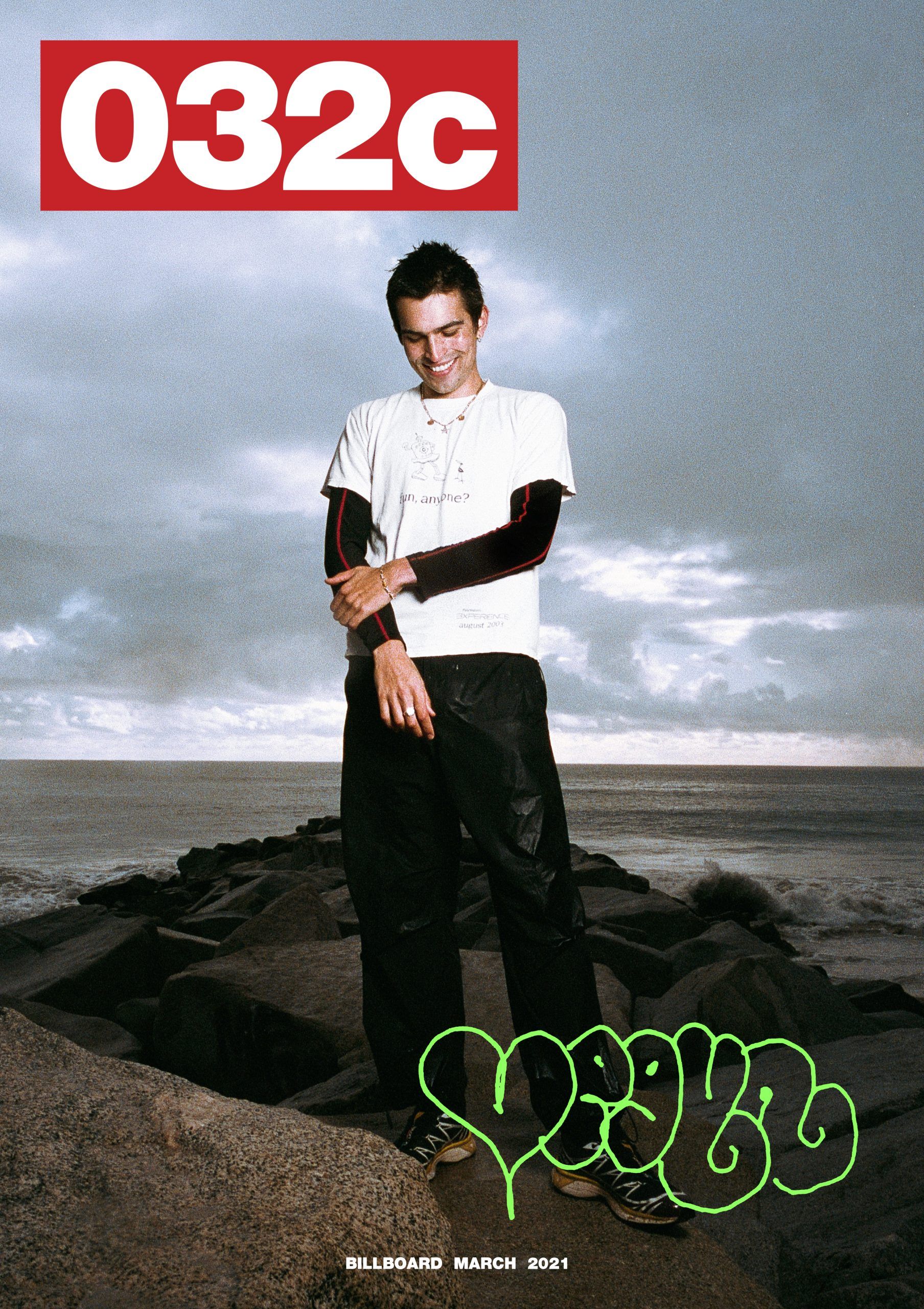
“You can choose the tone and you can choose the words and you can choose your delivery,” Joe Thornalley says with an expressive gesture, “but you can never control how somebody else is going to react to you.” The artist professionally known as Vegyn makes music that sits comfortably between language and sentiment – a limbo for which his 2020 single “There’s Nothing Left 2 Make U Stay” acts as an anthem. A bassy melody orbiting a titular refrain, the two-minute song’s subtle changes in tempo create a sense of unease – yet one of dawning realization.
Production credits on Frank Ocean’s landmark albums Blonde and Endless earned Vegyn industry name recognition back in 2016. His 2019 mixtape, Text While Driving If You Want To Meet God!, was devised as a transition from his earlier work – a 71-track rupture in an otherwise understated solo discography. His subsequent album Only Diamonds Cut Diamonds, released later that year, proved Thornalley’s capacity as an editor of both sound and sensibility: his signature approach being that of unpredictability, achieved through rhythmic detours and surprising juxtapositions with sampled field recordings. When the London native relocated to Los Angeles, his flight on election day landed him in a United States mired in apprehension. It’s only fitting that Vegyn’s forthcoming EP, Like A Good Old Friend, pushes his taste for disquiet further: “A lot of the tracks are playing with – or trying to confront – the things that make me feel uncomfortable,” he says.
In addition to working on his album, Vegyn has been busy contributing to projects by Dean Blunt and Duval Timothy in 2020, along with executive producing London artist John Glacier’s much anticipated debut due out on Vegyn’s own label, PLZ Make It Ruins, this summer. “I enjoy the business side as much as I do making music – having conversations with label A&Rs as an artist is fun,” says Vegyn. “I’m making them aware about the deal terms they’re putting forward, trying to fill the void of the label that I wish had been there for me when I was younger.”
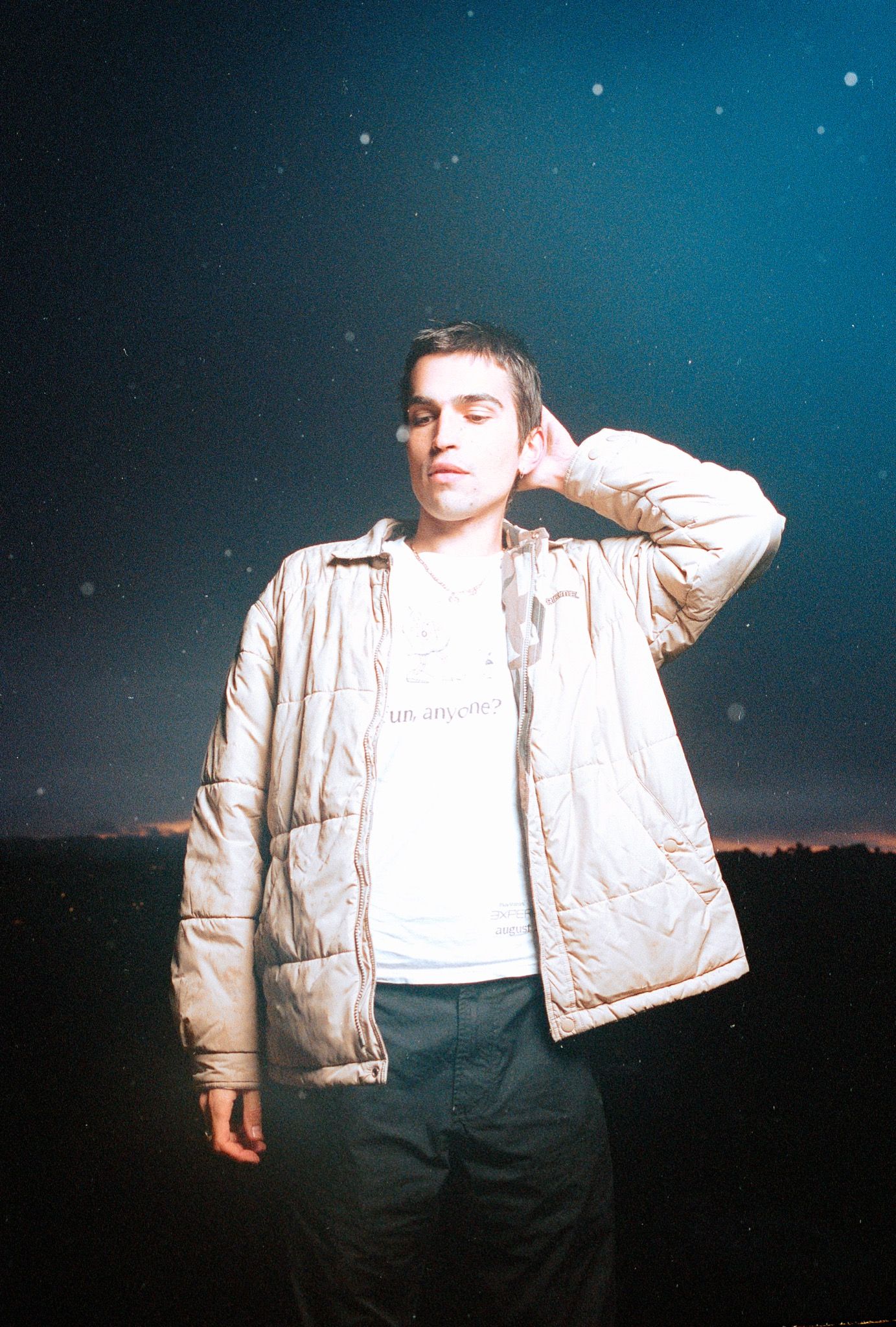
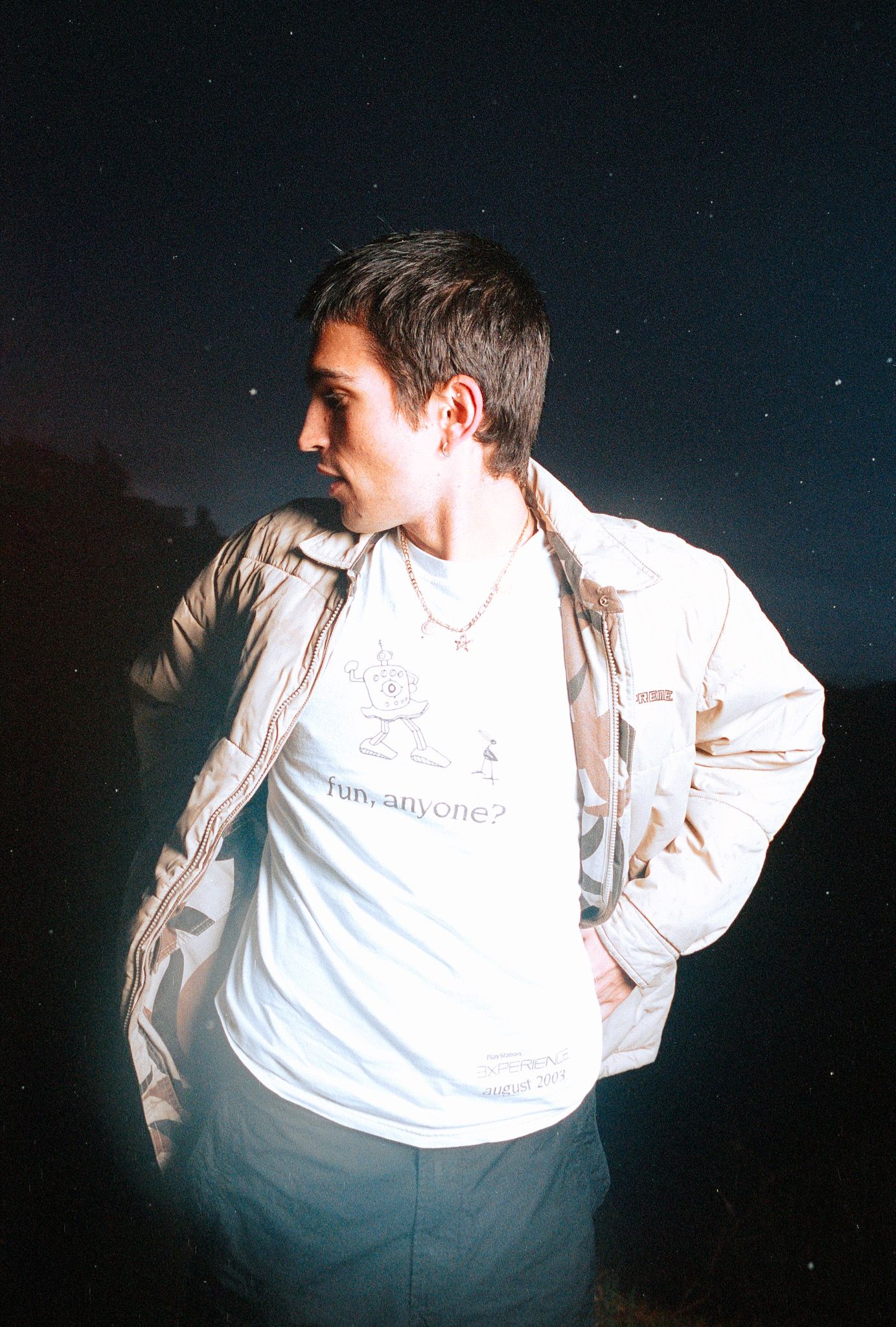
Octavia Bürgel: So, you touched down in LA on election day?
Vegyn: I didn’t mean it to work out like that, but the airline moved the flights and I was like, “Well, I guess this is when I’m landing.” It’s a funny victory. I came out here with the mindset that it was going to be another four years of Trump, so I suppose I was pleasantly surprised. I’m definitely thankful for the result, but I think Trump is a symptom of neo-liberal policy, and the failings of a democratic party who no longer represent the working class. Going back to the same-old is just not going to fix anything. The scary allure of fascism is that it typically acknowledges there is a problem with the current system. They say, “Yes, your jobs are going away. And you know whose fault it is?” It becomes about othering those who are the least able to defend themselves. Class in America isn’t as opaque as it is in the UK, but it’s a similar pallet. Capitalism is essentially feudalism. We still look to politicians as a means of actual change and historically, it’s never, ever been the case. Change has to come from the bottom up.
“The personal is political”: the rallying cry has never been more applicable in terms of a global experience, I feel.
I make money off of my art, and I’m very thankful for that, but most people still operate check-to-check. I started my label, PLZ Make It Ruins, seven years ago now, and it’s always been about artist empowerment. The sentiment behind the label started when I was 18 or 19 – I got offered a recording contract from a label that I was very excited by the prospect of being signed to. I’d always looked up to this label, and they offered me a terrible deal. They would own my masters outright. They were going to own 50%, forever. They weren’t going to clear any of the samples. They offered me an advance of 1000 GBP. It was a very sharp wake up call to the realities of the recording industry.
PLZ has always been about artist-friendly deal terms, but now it’s about trying to change the dynamics of the label structure itself. Ultimately these institutions are operating as banks. Anytime you’re getting an advance, that’s literally an advance cut of what your project is supposed to earn. When you’re a kid is when you get taken advantage of the most. Your first records are, a lot of the time, what keeps on giving later on. I’m very keen on enshrining that your masters are your retirement. At PLZ, the masters always return to the artist. In 10 years’ time, maybe you’ll want to buy a house or something. You can say, “I’m done making music, I don’t want to do this shit anymore, I am going to sell 100% of my shit to go live in a cabin in the woods,” and that is an option that, if you only owned 50%, you might not have.
Something I try to not shy away from is that my dad is in the music industry. From a young age, I’ve had a lot of opportunities presented to me that other people haven’t had – access to space where I could go to experiment, access to a lawyer that I can trust. These things can be so foreign at the beginning, and I was incredibly lucky. There’s that meme going around that’s like, “All you needed to do to become a great artist is have rich parents.” I’m trying to be aware of these power dynamics. People really respond to the self-made narrative, because it covers a lot of what we fetishize as a society: this loner Reagan/Thatcherite bootstrap libertarian type beat. I’m trying to look at the infrastructure that I actually can control, and ultimately champion the people that I think are talented. Hopefully they can then go do that for others.
You’re putting out John Glacier’s debut album on PLZ this summer. It’s the first project you have executive produced since Frank Ocean’s Endless. What can you tell me about it?
It’s really exciting – we just got the masters back. I’m eternally blessed to have met John. She’s one of the most beautiful people I’ve ever come into contact with. Before we even knew that the other made music, John and I were always the two freaks standing at the back of the party like, “Oh, you’re here again?” Then a friend of mine played me an artist called John Glacier’s stuff on YouTube. I’m like, “Who the fuck is this?” Finally a mutual friend of ours was like, “Dude, you guys are always chatting at the back of parties. I thought you knew that she made music.” I moved to Hackney at the end of 2019 and got a studio space there, and it turned out that John lived around the corner. I told her to come use the space when I’m not there, and that’s how we were able to make this thing together. For her to trust me to help her facilitate this project means the world to me. This shit to me is as good or even better than making Endless.
“People really respond to the self-made narrative, because it covers a lot of what we fetishize as a society: this loner Reagan/Thatcherite bootstrap libertarian type beat. I’m trying to look at the infrastructure that I actually can control, and ultimately champion the people that I think are talented.”
The new EP, Like A Good Friend, is really beautiful. “So Much Time, So Little Time” quickly became my song on repeat for like two weeks. What were you thinking about when you were working on it?
A lot of the time, when I’m thinking of what to do, I’ll try to focus on the things I’m least comfortable with. “So Much Time, So Little Time” was very much a response to my music being led by drum production. I said, “Okay, I want to make something that doesn’t have any drums at all,” to see if I can still make it translate.
I feel like this album focuses a lot more on melodies, in terms of how the songs are constructed. A lot of Diamonds was MIDI programmed, and I’ve since got a bit sick of doing that. I finished that album probably at the end of 2018 – there’s a lot of patience involved with releasing music – and honestly, I was very depressed. I was in LA, staying at a friend’s house. They were off on tour and they had a piano there, so for the past two years I’ve basically been teaching myself how to play piano. I have zero understanding of music theory. I started off playing two notes at a time, then started to add in a third. So much of this project has come from successful improvisations. I got really into trying to capture a more natural composition, and I actually prefer it now. Whenever you sit in front of the computer, there’s a certain precedent you’re setting yourself. If I open up Logic, it’s like, “Okay, I’m here to do something,” whereas if I sit at the piano, I’m just there to play. This project is pointing toward this general direction I’m going in of trying to confront the things that make me feel uncomfortable. I think a lot of people find my music quite happy or uplifting, and I like that, but there’s always a deep sadness in there, too. There’s not a simple duality to this stuff, but if the music becomes a conduit for any kind of emotional response, then I hope that’s one of healing.
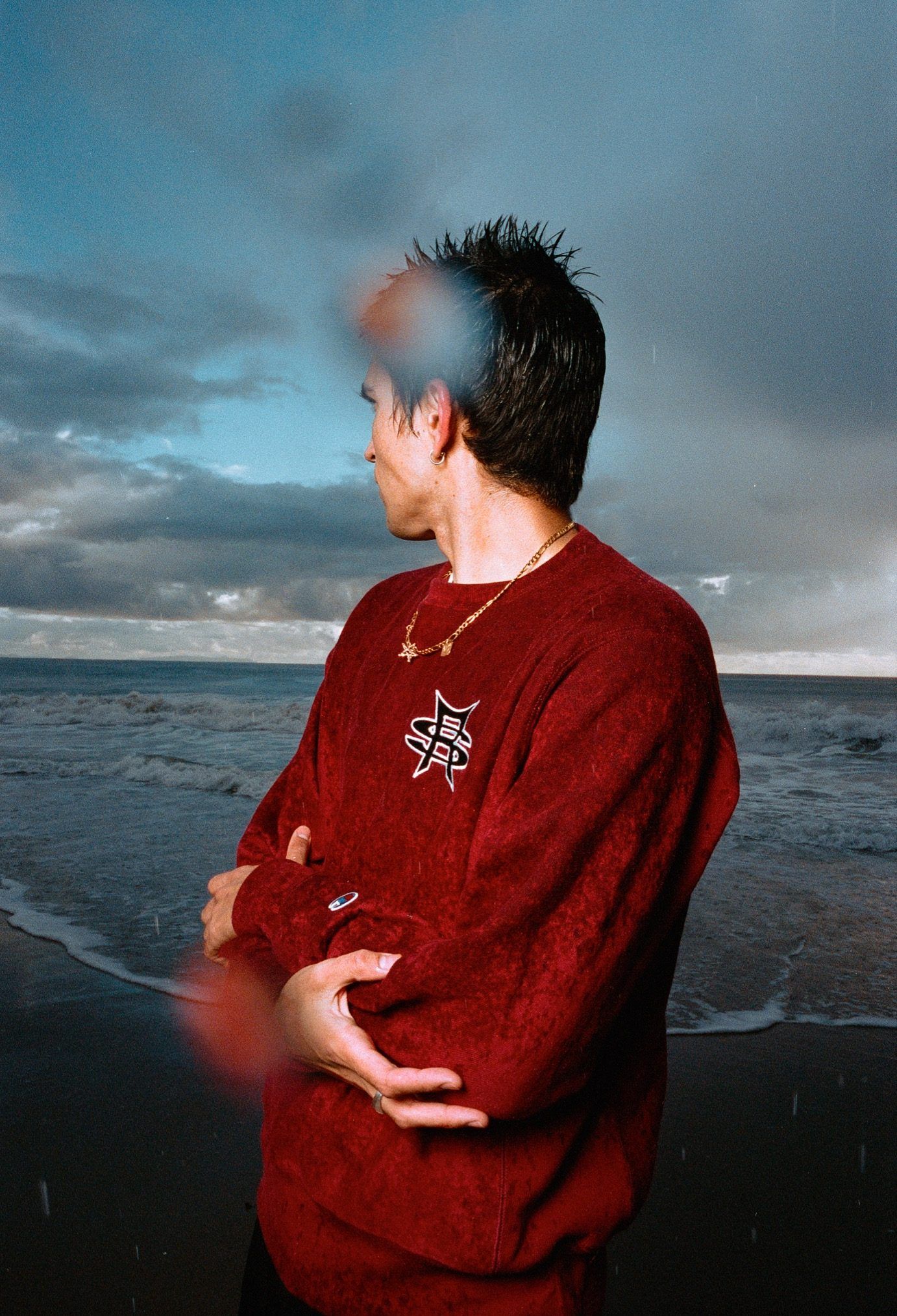
When I was making the project, I found a deck of tarot cards, which I knew is how you’re supposed to get them. I was initially extremely resistant to something I couldn’t rationalize or understand. The person I was seeing at the time was like, “This is a very serious sign: fate, or whatever, is trying to show you something.” I ended up studying the cards and the rich visual narrative. I’m into anything that allows people to have a period of self-reflection. But if you’re using these things as divination tools, you’re tapping in for the wrong reason. It’s not like, “This is what’s going to happen to you,” but more like, “Be aware of these things that are already going on in your life.” The deck gives me really useful ideas to ponder. I chose The Tower as the cover for the EP, because it was a card that kept coming up for me before the pandemic, often in the same position. I can’t move to a new place and expect things to instantly line up – but in the name of the cards, the wheel keeps turning. So, I have to keep going. I’m trying to understand how to love myself more – as opposed to how to make the most money as I possibly can.
It does feel like there’s an emotional register that carries throughout your work. And there are threads that tie pieces of your music to each other without making fully linear connections – which has an esoteric quality, like it’s open to personal interpretation.
I’ve been told that the music doesn’t resolve in a traditional way. There is something to be said for how short something can be. There is so much music that’s successfully meditative, where you don’t even register that it’s playing on a loop. Hip-hop in general is so good at that – especially 808 Mafia, Southside, Metro Boomin, Wheezy, Pi’erre Bourne – a lot of these producers are making music that feels so good and it’s so short. We’re talking about two bars of music, for the most part. And it’s still so effective as a means of translating a certain feeling. I find that question really inspiring: What’s the smallest amount of information that you can put into something for it to still register as healing or destructive, or whatever? I’m not trying to be controversial by saying this, but I do purposely try to trigger people with the music. I will hide certain sounds in my music, whether the brain recognizes them consciously or not.
“It’s Nice to Be Alive” opens with the sound of a heart rate monitor. It’s very subtle, but it’s one of those sounds that your brain immediately identifies and renders significant.
There’ll be clips from movies or TV, or a lot of the time it’ll be from games that I’ll play. I try to code that information into something that causes someone to feel, whether they recognize it or not. When we were mastering “It’s Nice to Be Alive,” the heart rate monitor sound really brought something out of my mastering engineer. When his daughter was born, she was in the intensive care unit. I obviously hadn’t anticipated that. For me, it became about trying to convey rebirth. Ultimately, it gave that song an even deeper meaning to him because it brought back so many other memories. His daughter is doing great now. I’m trying to think of another example from the album that won’t get me in trouble, but maybe it’s better to just see if people find them.
You have spoken in the past about trying to create a kind of “endless scroll” with your longer projects. Is that a byproduct of streaming’s effect on the way we engage music?
Yeah, but it was also the reasoning behind the giant mixtape, Text While Driving If You Want to Meet God! I wanted to create a physical scroll space between the music I released in 2014 and the music that I was releasing in 2019. It was a long time to not release anything, so my thinking was, “I’m going to make it physically difficult for people to go back and find the older stuff that doesn’t represent me as much anymore.”
“There’s not a simple duality to this stuff, but if the music becomes a conduit for any kind of emotional response, then I hope that’s one of healing.”
It’s difficult with music, because sometimes you end up stuck with the choices you made as a teenager. I don’t know if I would be called “Vegyn” now, but I’m glad that I am. I think it’s funny and it elicits a reaction from people, which I think is good – and I like that people pronounce it wrong. In France, they call me “Veg-yn,” and I love it. At least people have registered what I do. These things, like how I was being perceived by other people, used to really upset me. But now I don’t have any control over it. So, why would I let it upset me? You can choose the tone and you can choose the words and you can choose your delivery, but you can never control how somebody else is going to react to you.
Without putting your music into a box, it does seem to be playing with a pop sensibility. I’m thinking especially about Text While Driving and the condensed, almost sketch-like nature of each track. Engaging with the world, as most of us do, through screens, has created its own vernacular of speed and compression that the genres or categories we created before maybe don’t apply to in the same way.
Technology has always influenced music. Even the perfect three minute pop song length – that’s only because that was what you could reasonably fit on a 45 RPM single. Technology has always dictated the norms. I think there is something to be said for the album format – it’s important to try to make something that is long, cohesive and continuously engaging. There are also a lot of albums that came out in the 1990s and early 2000s – like, Vanilla Ice has sold how many albums? People were just trying to buy that one song, but they literally couldn’t. They had to buy the CD – $17 just to get the one song they actually wanted to listen to. The music industry, as a result, became so set in their ways. They started suing people who downloaded music illegally, but there was no other way for people to get to the music they actually wanted.
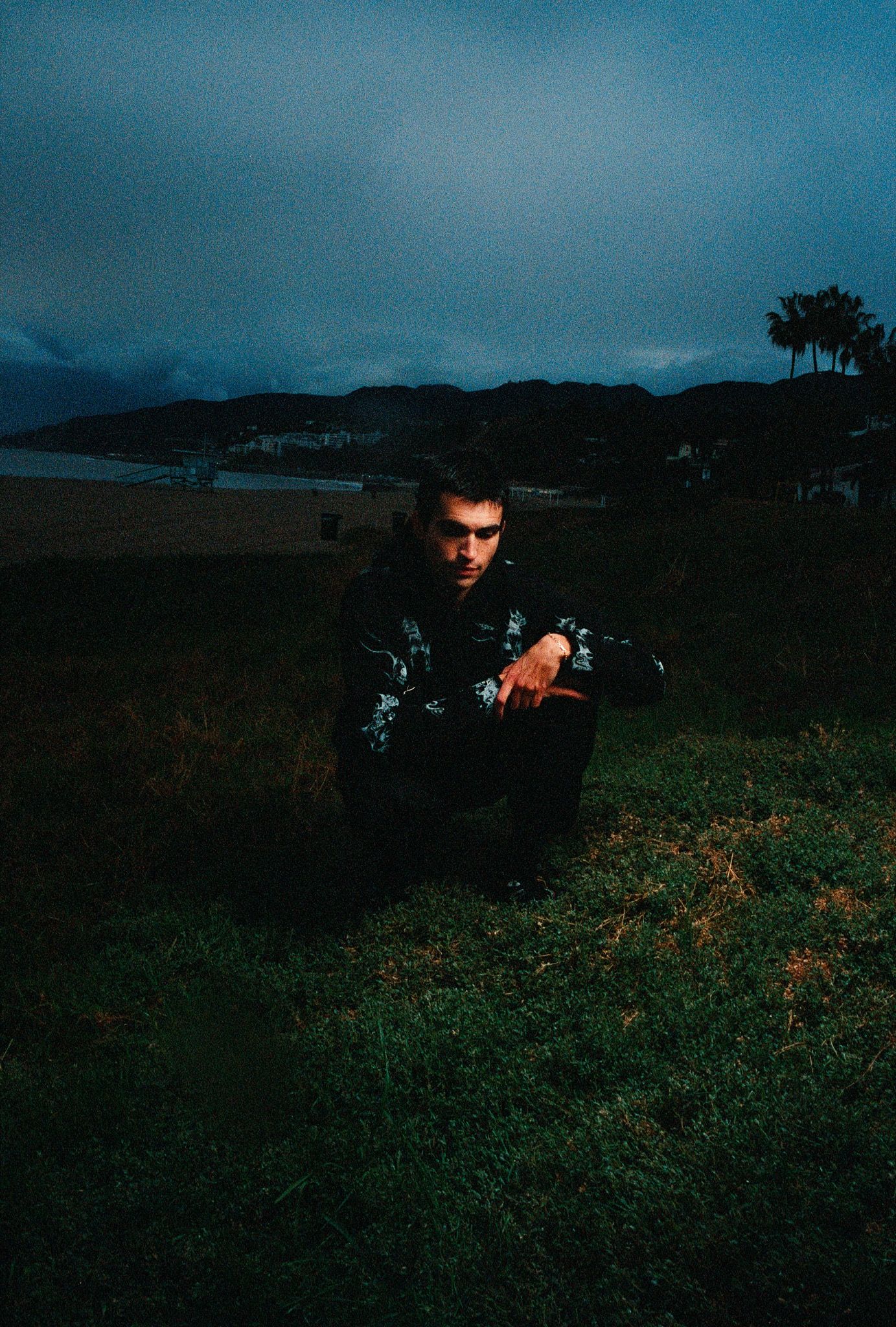
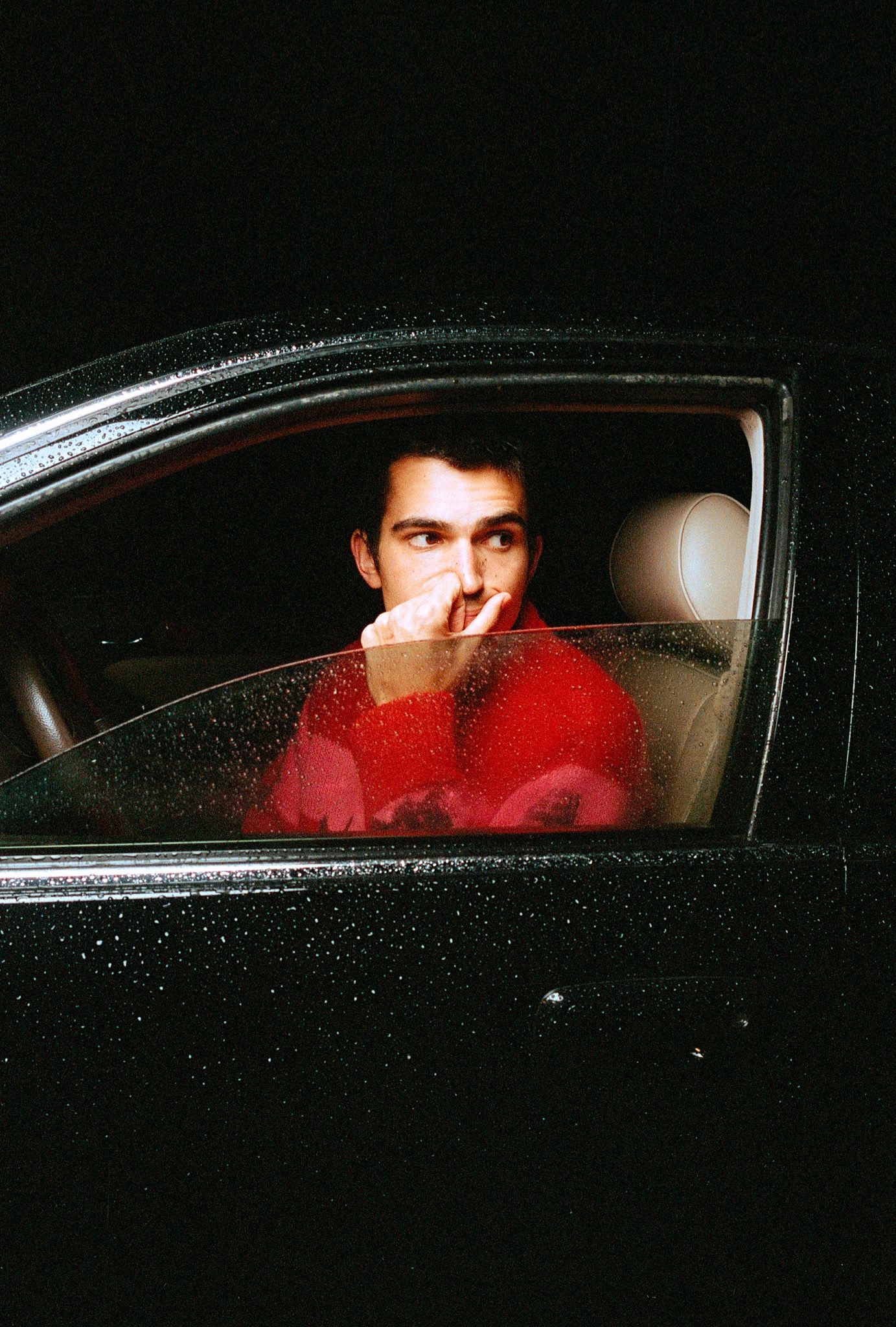
Electronic music in particular, for me, is very much about modernity. A lot of my stuff lives in the computer. A lot of my friends don’t enjoy making music like that because it’s not their language – they prefer something tactile: hardware or a guitar or whatever. I’m always looking for new pieces of software or equipment, because I also like to be able to pick up my laptop and take all my gear with me wherever I go. It’s a lot more convenient for someone who’s living a fairly transient lifestyle.
Are your songs actually “songs” to you? I did an interview with artist Aria Dean last year, where she spoke about her work as entering “into some sort of collectivity… that goes beyond these-things-look-like-those-other-things, but that conceptually forms a mega-artwork.” How do you relate to your music once it becomes available to a general audience?
It’s changing all the time. As I am making things, there comes a point where a decision is made that this is done. You accept something for what it is. I love listening to other people’s music because they have obviously come to that conclusion at some point. I don’t have to ask myself, “What would I do differently?” Making my own music can be really, really frustrating, because you are battling that idea. The initial conception of the song happens, and then there’s a six month period where I’m just experimenting, adapting, trying to figure out the structure of it. On this EP, some of the songs are quite old by now.
“Mushroom Abolitionists,” a track on the new EP, has chords that I play all the time – one of my favorite progressions. I love to play it, but to accept that song as the representation of those chords is really difficult. What I love about Duval Timothy’s work is that he is constantly reinterpreting a lot of the same progressions, but each time there’s a different kind of emotional weight to it. I guess at the end of the day, each of these things has got to make me feel a certain way, because it’s coming out under my name. I have a certain responsibility to make sure it’s as good as it can possibly be. That being said, on Text While Driving there are plenty of things that I don’t particularly like, but I’ll get messages from people saying, “This is my favorite song.” That mixtape was so good because it was just about creating a space where the music can exist as ideas, without necessarily needing to be fully formed. Rather than this music sitting on my hard drive, the digital landscape is such that it can have a life as a huge 71-track thing. The record is completely alphabetical. It’s literally an archive – a zip file that I’ve put online. There’s a distinct choice to not sequence it because it was meant for this new way of engaging. People are like, “Does he really expect me to listen to the whole thing?” No, I don’t. But some people will, and that’s great. Others will listen to it once and pick out their faves to add to the playlist. It’s trying to interact with that world a little bit more. Diamonds is more of a start-to-finish record, similar to Like A Good Old Friend, where I’m trying to create something a bit more cohesive.
Lately, I’ve been asking about “new institutions” in a lot of my interviews. It’s a refrain that I keep hearing from people – this desire to build new systems. You even referred to PLZ as a “new institution” earlier. What does that mean to you, though? And how do we avoid building these institutions in the image of the ones we are currently trying to dismantle?
I really want to build an institution that actually can benefit people long-term. There’s an ecosystem at PLZ, where if somebody bigger wants to come and do a release with us, we can facilitate that and they will know that the money it generates isn’t going to the label head – it’s not going into my pocket. It’s going into helping create new opportunities for other artists. We’ve got the receipts to prove it. I think the only way that you really facilitate change is through de-funding or moving the money around. We live in a capitalist society, whether we want to or not. I am forced to engage with it because it is the reality of the situation. But I can look at where my money is going and who might be earning from it.
The word utopia means “nowhere,” right? It references a place that doesn’t exist – but it’s striving toward something. I like the anarchist approach because it’s about constantly destroying systems. Real anarchism to me is saying, “I’m participating, but this system isn’t working, so how do we build a better one? How will that work better for everyday working people?” That’s ultimately what it’s about: not looking to other individuals as a means to do something, but just doing it.
Credits
- Text: Octavia Bürgel
- Photography: Zamar Velez
- Drawing: Joshua Gordon

